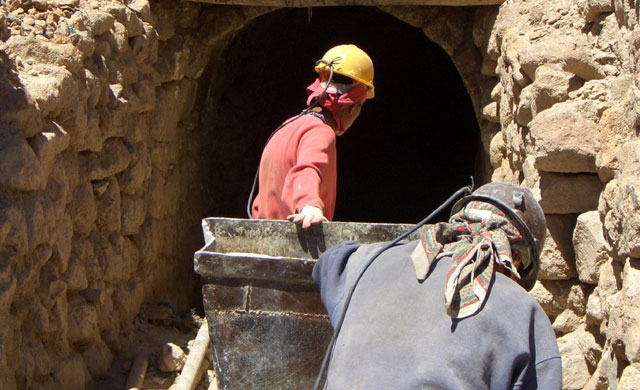Crowds cheered at a football pitch in South Africa but not to support its favourite team. The audience were Lonmin (LSE:LMI) miners, who finally gave in and compromised to a 22% increase in wages announced by their representatives in the negotiation with management that is hoped to bring the six-week strike, which claimed 45 lives, to a close.

The increase puts salaries of the protesters, rock drill operators, of the world’s third largest platinum producer to over 11,000 South African Rand (SAR) – close to the SAR 12,500 demand the more than 3,000 machete-wielding workers campaigned for entry level positions back in August, according to reports.
On top of the new wage hike, Lonmin was reported to have committed to release SAR 2,000 one-off payment for every striker to cover for the unpaid weeks while they were on strike, BBC said.
Strikers promised they will come back to work on Thursday, after negotiating to be on leave Wednesday to prepare themselves for work again.
Lonmin shares gained a single pence to £6.50 a share at the close of trading on the London Stock Exchange while platinum prices fell about 2% to US$1,628 per ounce, following the news.
Far From Over
Whilst the new development has put an end to the labour unrest – at least in Lonmin – that spread to several other mining companies in Rustenburg, where the world’s top three producers of platinum mine their resources, miners are still seeking to achieve the SAR 12,500 minimum wage for entry levels within the next two years.
Lonmin, however, was reported to have not responded on this demand, and the final terms of the negotiation is scheduled to be completed tonight. No official statement was issue yet and may have to be released on Wednesday.
Meanwhile, South Africa’s President, Jacob Zuma said investors should take comfort in “the manner in which we have swiftly attended to the situation”.
The President, who has recently increased his own compensation for leading the country by 5.5% to SAR 2.6 million or about US$ 315,600, had had to leave a conference last week to be on top of the situation.
According to the President, the labour unrest has cost SAR 4.5 billion or about US$548 million in lost production, badly hurting the mining industry in Rustenburg, which accounts for 94% of all the platinum mined and employs about 35% of all the jobs in the country.
Impending Threat
Woes of the uncertainty borne out of the conflict with miners and their employers have hit the Rand’s currency exchange dealings, increased insurance costs, and investors divesting their interests in mining companies.
The wage issue, nonetheless, is far from over. As the strike of Lonmin’s employees come to a close, a similar scenario is looming at the world’s number two platinum producer, Impala Platinum Holdings (LSE:IPLA) as workers have recently demanded another 10% rise in salary – the second within six months – and the case at Lonmin may be used as a precedent.
The world’s number one producer of platinum, Anglo American Platinum (LSE:AAL) has also received a list of demands from nearly 300 employees who joined with other striking miners in Rustenburg.
The bloody and violent strike that started in Lonmin’s Marikana mine has made the company reduce its annual capital expenditures for 2013 and 2014. This will result in the loss of about 1,200 staff, with the termination of contract from one of its contractors effective 17th October, a collateral damage which, in itself, poses a new threat to the labour sector in South Africa.


 Hot Features
Hot Features













